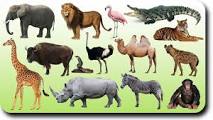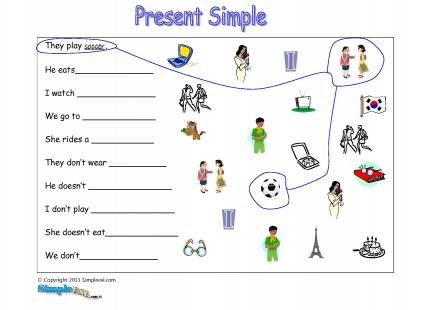
|
Unit2: Living things |
School: I.Zhansugirov |
|||||||
|
Date:15.10.2018y |
Teacher name: Skenderova Bizhamal |
|||||||
|
CLASS: 5 «а ә» |
Number present: |
absent: |
||||||
|
Lesson title |
Human beings |
|||||||
|
Learning objectives that this lesson is contributing to (link to the Subject programme) |
5.L3 understand an increasing range of unsupported basic questions on general and curricular topics 5.S6 communicate meaning clearly at sentence level during, pair, group and whole class exchanges 5.UE9 use simple present and simple past regular and irregular forms to describe routines, habits and states on a limited range of familiar general and curricular topics |
|||||||
|
Lesson objectives |
All learners will be able to:
Most learners will be able to:
Some learners will be able to:
|
|||||||
|
Assessment criteria |
|
|||||||
|
Values links |
The Patriotic Act “Mangilik Yel” 3rd value: A secular society with high spirituality |
|||||||
|
Cross-curricular links |
Biology, PE |
|||||||
|
Previous learning |
Learners know all the names of animals |
|||||||
|
Plan |
||||||||
|
Planned timings |
Planned activities (replace the notes below with your planned activities) |
Resources |
||||||
|
Start 3 min
3min |
Greeting. The teacher greets the learners and creates the positive learning atmosphere. I divide class into two groups by method “With sentences”. I am going to give children several cards is written mixed sentences according to the Present and past tenses. Learners choose one card for dividing groups. - Present Simple - Past Simple Checking up the home task. Activity -“Picture prompt”
|
Picture of animal |
||||||
|
Middle 5 мин
10 min
7 min
5 min
|
Pre- Listening task by methods “Remember the words” Differentiation by group ability More able learners can spell words correctly and recognize meaning of the text and help to less able learners put the right place Teacher says to learners different words according to the “human beings” then learners listen and write the hearing words. They should clean the writing words and try this again. Learners work in pairs and take turns on computer to do spelling task in website. How many words can they spell correctly?[10 words] Leg, arm, hand, eyes, ears, mouth, nose, hair, foot, shoulder They change round and spell the other five words. How many can they spell correctly a second time? Learners in small groups take turns to define a body part for others in their group to guess. Group learners and hand out to each group a set of body cards to be defined. Descriptor: A learners
AFL: Yes or No cards While – listening task Differentiation by scaffolding (with pause) More able learners listen to the text and fill in the gaps with missing words without support by CD1Tapescript12. During to do the task less able students listen to the text twice and pause. My favorite thing has to be my new tablet. It’s really light and quite _____________, so I take it with me everywhere. I always write messages to friends and it’s big enough to do college work on it too. It takes really good _____________, and I play games and listen to _____________ on it as well, of course. I often download _____________ onto it, and watch them in _____________. My mum says I’m _____________, because I’m always on it. I even read things on it at breakfast time. I’m not allowed to use it at _____________ time, though. I have to be _____________ and talk to people then. “Welcome back to real life,” my mum says. Descriptor: A learner • listens and reads the text; • writes the missing words while listening; Post- listening task. (PW) All learners count the numbers 1-6 and find their partner. Ask and answer the following questions: 1. What is the favorite thing of the author? 2. Does the author use it only at home? 3. Who write the message to friend? Descriptor: A learners
AFL: peers assessment Differentiation by type of task Less able learners match the pictures with present simple phrases. Complete the sentences with help pictures and teachers support.
More able learners change the tense in each of the following sentences. Use the tense given in brackets. 1. My father loves seafood. (change to past simple) My father --------------- seafood. 2. Do you like films? (change to past simple) Did you like the film? 3. My sister doesn’t have a job. (change to past simple) My sister didn’t had a job a year ago. Descriptor: A learner
Speaking task. Use the information to speak Sarah’s blog. Before Now short hair long hair like ice-cream don’t like ice-cream believe in ghosts don’t believe in ghosts don’t like pasta love bread and pasta live in Birmingham live by the sea in Bournemouth Look at this picture! That’s me when I was a baby. I used to have short hair, but now …___________________________________ Descriptor A learner • writes Sarah’s blog; • describes Sarah’s life; • uses topical vocabulary; • writes words and phrases accurately. AFL: Teachers assessment in oral form |
Worksheets
CD1Tapescript12
flashcards
Cards
A collection of tasks for Formative Assessment A collection of tasks for Formative Assessment |
||||||
|
End 5 min |
Feedback “Image of man” What they have What remained What they need to learned for them continue working on
Teacher gives them comments about students work and ask students write “All you know activity”. Students write down everything they know about “Body” Home task. Make up sentences using Present and Past Simples according to the “My Body” |
Stickers |
||||||
|
Additional information |
||||||||
|
Differentiation – how do you plan to give more support? How do you plan to challenge the more able learners? |
Assessment – how are you planning to check learners’ learning? |
Health and safety check |
||||||
|
Differentiation by group ability More able learners can spell words correctly and recognize meaning of the text and help to less able learners put the right place Differentiation by scaffolding (with pause) More able learners listen to the text and fill in the gaps with missing words without support by CD1Tapescript12. During to do the task less able students listen to the text twice and pause. Differentiation by type of task Less able learners match the pictures with present simple phrases. Complete the sentences with help pictures and teachers support. More able learners change the tense in each of the following sentences. Use the tense given in brackets. |
I will use to inspiriting my learners using various formative assessment strategies to motivate them by doing monitoring, checking the task, giving feedback orally by peers and orally by me after every task. And at end of the lesson I will use strategy Feedback “Image of man” What they have What remained What they need to Learned for them continue working on
|
CD1Tapescript12 Health saving technologies. Rules from the Safety Rules book |
||||||
|
Reflection
Were the lesson objectives/learning objectives realistic? Did all the learners achieve the lesson objectives/ learning objectives? If not, why? Did my planned differentiation work well? Did I stick to timings? What changes did I make from my plan and why? |
Use the space below to reflect on your lesson. Answer the most relevant questions from the box on the left about your lesson. |
|||||||
|
|
||||||||
|
Summary evaluation What two things went really well (consider both teaching and learning)? 1: 2: What two things would have improved the lesson (consider both teaching and learning)? 1: 2: What have I learned from this lesson about the class or individuals that will inform my next lesson? |
||||||||
жүктеу мүмкіндігіне ие боласыз
Бұл материал сайт қолданушысы жариялаған. Материалдың ішінде жазылған барлық ақпаратқа жауапкершілікті жариялаған қолданушы жауап береді. Ұстаз тілегі тек ақпаратты таратуға қолдау көрсетеді. Егер материал сіздің авторлық құқығыңызды бұзған болса немесе басқа да себептермен сайттан өшіру керек деп ойласаңыз осында жазыңыз
Ашық сабақ: "Human beings"
Ашық сабақ: "Human beings"
|
Unit2: Living things |
School: I.Zhansugirov |
|||||||
|
Date:15.10.2018y |
Teacher name: Skenderova Bizhamal |
|||||||
|
CLASS: 5 «а ә» |
Number present: |
absent: |
||||||
|
Lesson title |
Human beings |
|||||||
|
Learning objectives that this lesson is contributing to (link to the Subject programme) |
5.L3 understand an increasing range of unsupported basic questions on general and curricular topics 5.S6 communicate meaning clearly at sentence level during, pair, group and whole class exchanges 5.UE9 use simple present and simple past regular and irregular forms to describe routines, habits and states on a limited range of familiar general and curricular topics |
|||||||
|
Lesson objectives |
All learners will be able to:
Most learners will be able to:
Some learners will be able to:
|
|||||||
|
Assessment criteria |
|
|||||||
|
Values links |
The Patriotic Act “Mangilik Yel” 3rd value: A secular society with high spirituality |
|||||||
|
Cross-curricular links |
Biology, PE |
|||||||
|
Previous learning |
Learners know all the names of animals |
|||||||
|
Plan |
||||||||
|
Planned timings |
Planned activities (replace the notes below with your planned activities) |
Resources |
||||||
|
Start 3 min
3min |
Greeting. The teacher greets the learners and creates the positive learning atmosphere. I divide class into two groups by method “With sentences”. I am going to give children several cards is written mixed sentences according to the Present and past tenses. Learners choose one card for dividing groups. - Present Simple - Past Simple Checking up the home task. Activity -“Picture prompt”
|
Picture of animal |
||||||
|
Middle 5 мин
10 min
7 min
5 min
|
Pre- Listening task by methods “Remember the words” Differentiation by group ability More able learners can spell words correctly and recognize meaning of the text and help to less able learners put the right place Teacher says to learners different words according to the “human beings” then learners listen and write the hearing words. They should clean the writing words and try this again. Learners work in pairs and take turns on computer to do spelling task in website. How many words can they spell correctly?[10 words] Leg, arm, hand, eyes, ears, mouth, nose, hair, foot, shoulder They change round and spell the other five words. How many can they spell correctly a second time? Learners in small groups take turns to define a body part for others in their group to guess. Group learners and hand out to each group a set of body cards to be defined. Descriptor: A learners
AFL: Yes or No cards While – listening task Differentiation by scaffolding (with pause) More able learners listen to the text and fill in the gaps with missing words without support by CD1Tapescript12. During to do the task less able students listen to the text twice and pause. My favorite thing has to be my new tablet. It’s really light and quite _____________, so I take it with me everywhere. I always write messages to friends and it’s big enough to do college work on it too. It takes really good _____________, and I play games and listen to _____________ on it as well, of course. I often download _____________ onto it, and watch them in _____________. My mum says I’m _____________, because I’m always on it. I even read things on it at breakfast time. I’m not allowed to use it at _____________ time, though. I have to be _____________ and talk to people then. “Welcome back to real life,” my mum says. Descriptor: A learner • listens and reads the text; • writes the missing words while listening; Post- listening task. (PW) All learners count the numbers 1-6 and find their partner. Ask and answer the following questions: 1. What is the favorite thing of the author? 2. Does the author use it only at home? 3. Who write the message to friend? Descriptor: A learners
AFL: peers assessment Differentiation by type of task Less able learners match the pictures with present simple phrases. Complete the sentences with help pictures and teachers support.
More able learners change the tense in each of the following sentences. Use the tense given in brackets. 1. My father loves seafood. (change to past simple) My father --------------- seafood. 2. Do you like films? (change to past simple) Did you like the film? 3. My sister doesn’t have a job. (change to past simple) My sister didn’t had a job a year ago. Descriptor: A learner
Speaking task. Use the information to speak Sarah’s blog. Before Now short hair long hair like ice-cream don’t like ice-cream believe in ghosts don’t believe in ghosts don’t like pasta love bread and pasta live in Birmingham live by the sea in Bournemouth Look at this picture! That’s me when I was a baby. I used to have short hair, but now …___________________________________ Descriptor A learner • writes Sarah’s blog; • describes Sarah’s life; • uses topical vocabulary; • writes words and phrases accurately. AFL: Teachers assessment in oral form |
Worksheets
CD1Tapescript12
flashcards
Cards
A collection of tasks for Formative Assessment A collection of tasks for Formative Assessment |
||||||
|
End 5 min |
Feedback “Image of man” What they have What remained What they need to learned for them continue working on
Teacher gives them comments about students work and ask students write “All you know activity”. Students write down everything they know about “Body” Home task. Make up sentences using Present and Past Simples according to the “My Body” |
Stickers |
||||||
|
Additional information |
||||||||
|
Differentiation – how do you plan to give more support? How do you plan to challenge the more able learners? |
Assessment – how are you planning to check learners’ learning? |
Health and safety check |
||||||
|
Differentiation by group ability More able learners can spell words correctly and recognize meaning of the text and help to less able learners put the right place Differentiation by scaffolding (with pause) More able learners listen to the text and fill in the gaps with missing words without support by CD1Tapescript12. During to do the task less able students listen to the text twice and pause. Differentiation by type of task Less able learners match the pictures with present simple phrases. Complete the sentences with help pictures and teachers support. More able learners change the tense in each of the following sentences. Use the tense given in brackets. |
I will use to inspiriting my learners using various formative assessment strategies to motivate them by doing monitoring, checking the task, giving feedback orally by peers and orally by me after every task. And at end of the lesson I will use strategy Feedback “Image of man” What they have What remained What they need to Learned for them continue working on
|
CD1Tapescript12 Health saving technologies. Rules from the Safety Rules book |
||||||
|
Reflection
Were the lesson objectives/learning objectives realistic? Did all the learners achieve the lesson objectives/ learning objectives? If not, why? Did my planned differentiation work well? Did I stick to timings? What changes did I make from my plan and why? |
Use the space below to reflect on your lesson. Answer the most relevant questions from the box on the left about your lesson. |
|||||||
|
|
||||||||
|
Summary evaluation What two things went really well (consider both teaching and learning)? 1: 2: What two things would have improved the lesson (consider both teaching and learning)? 1: 2: What have I learned from this lesson about the class or individuals that will inform my next lesson? |
||||||||

шағым қалдыра аласыз


























